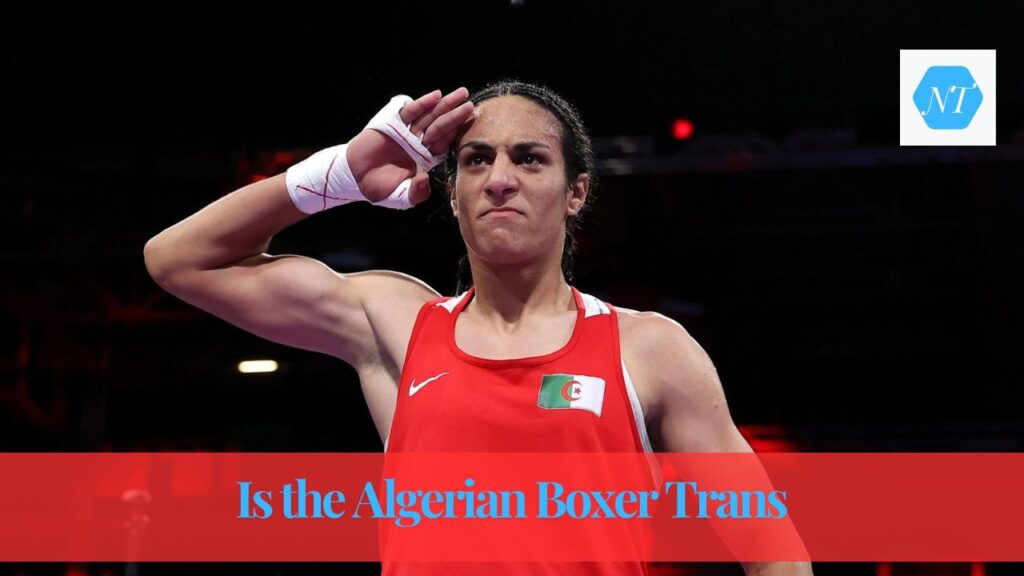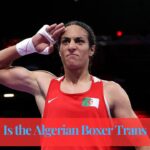Sports long have been subjected to controversy, particularly in matters of gender and qualification. Algerian boxer Imane Khelif is a young player in women’s boxing and remains at the head of a controversy that combines science, politics, and sportsmanship. Though undeniable in her talent and avidness for boxing, Imane Khelif’s disqualification from the 2023 World Championships due to elevated testosterone level raises questions on gender eligibility in sports. Here’s a look into the facts, controversies, and wide implications about Imane Khelif and the battle over gender in professional boxing.
Who is Imane Khelif?
Born in 1999 in rural northwestern Algeria, Imane Khelif is part of the generation pushing women’s sports forward. Difficulties were not lacking for this young champion either. Growing up in a rather austere society, her father was one of those preventing girls from playing at all in boxings. Undeterred by resistance, Khelif, however, continued to rigorously train for the sport she loved, which sometimes took her on 10-kilometer journeys each way to the gym.
Her efforts were rewarded when she was selected for the national team when she represented Algeria at the 2018 AIBA World Championships now known as the IBA World Championships. All in all, despite being defeated in five of her first six elite bouts, Khelif’s success began to be noticed in 2021, when she was one of the country’s first three female Olympic boxers in Tokyo before losing in the second round.
Khelif’s career has moved to a high trajectory on the back of impressive performances in regional and international tournaments. Some of her achievements include a UNICEF ambassadorship. Her name has been adapted for young athletes within Algeria and beyond as a role model. Her rise to fame, however, has not been without controversy.
The Gender Eligibility Debate
The storm in Imane Khelif’s case overcame the boiling point when she was suddenly disqualified from the 2023 World Championships after qualifying for the final. The verdict? Elevated testosterone levels. According to the IBA, her levels exceeded the threshold for eligibility in women’s competitions. This verdict stirred up a firestorm of protest, not only from Khelif but from critics of the IBA’s opaque and erratic testing protocols.
Was Imane Khelif Born Female?
Yes, she was female at birth and should be shown to be female in the passport. The reason for this is that most of the debate on gender in sports eligibility centres around the transgender athlete who transitioned from male to female. There is no indication, nor evidence to suggest that Khelif is transgender. Rather, her challenge was purely biochemical: her testosterone levels were too high.
This can result in medical conditions, for example, hyperandrogenism, which causes women naturally to have higher-than-average levels of androgens (male hormones). This is one reason that has also caused controversies with many other female athletes, including South African runner Caster Semenya.
Why Was Khelif Disqualified?
There were several reasons why the IBA decided to disqualify Khelif, who sparked considerable controversy.
- The IBA had failed to provide details about the testing process, threshold levels of testosterone, or what was scientifically exact about their decision. This led to fuel suspicion of bias or possible mismanagement.
- Timing of the Disqualification: Khelif was permitted to compete in earlier rounds of the championship before being disqualified. Critics argue that if her testosterone levels were found to be ineligible, the decision should have been made before the competition began, not after advancing to the final rounds.
- Its history has been marked by governance scandals, allegations of corruption and lack of accountability. It has also drawn fire over its ties to Russian interests, including receiving sponsorships from Gazprom.
- The International Olympic Committee, which has prohibited the IBA from administering Olympic boxing since 2019, criticized the way Khelif’s case was handled: “arbitrary” and “without due process.”
Political Fallout
Public discussion regarding Khelif’s case has been lively: sometimes supportive, others condemnatory. Several high-profile figures have used her story to foster broader arguments about gender and fairness in sports, primarily on the political right.
Former U.S. President Donald Trump and Italian Prime Minister Giorgia Meloni have protested about “woke culture” infecting sport; it undermines fairness and safety if athletes with atypical hormone levels, or those who are transgender, can compete in female categories.
As has been well known for her campaigning on gender issues, author J.K. Rowling weighed in, citing Khelif as part of perceived injustices in women’s sports.
This tends to muddle together several very different issues, including transgender athletes and intersex conditions, that contribute to muddy waters over what is already a complex debate.
What Does the Science Say?
Much has been said lately about testosterone levels and athletic performance. While it is true that testosterone is one of the hormones that assists in the gaining of muscle mass and increases endurance, individual differences abound.
Khelif’s case is a demonstration of how it is hard to formulate a unified set of eligibility standards that would allow for both representation and equity. Organizations like World Athletics and World Aquatics have established tougher testosterone levels, but the scientific community has not agreed on one single most equitable approach.
Is Imane Khelif Unbeatable?
Despite the commotion, Khelif is not an unstoppable force for women’s boxing. With a record that shows she has been defeated numerous times by effective opponents, including a loss to Irish boxer Kellie Harrington at the Tokyo Olympics, Khelif did not demonstrate overwhelming dominance even at the 2023 World Championships, where she got disqualified.
The idea that Khelif is a danger to her opponents, as suggested by the withdrawal of Italian boxer Angela Carini from their bout at the Paris Olympics, is not supported by the boxing world. Several fighters, including Hungarian Anna Luca Hamori and Irish champion Amy Broadhurst, dismissed the idea that Khelif was the strongest. Broadhurst even defended Khelif on social media, stating, “I don’t think she has done anything to ‘cheat.’ It’s the way she was born.”
What’s Next for Khelif?
Imane Khelif continues to compete, with her sights set on future tournaments and possibly the Paris Olympics. However, the controversy surrounding her eligibility underscores the need for clearer, fairer, and more transparent regulations in sports.
The IOC, for example, has made a call for governing bodies to have an evidence-based policy that allow respect for human rights while maintaining fair competition. Athletes like Khelif will continue to be on the centre stage of the debate regarding gender and eligibility as the conversation grows on both topics.
Conclusion
Imane Khelif’s case is above and beyond a matter of boxing. It represents more of the general challenges that all athletes have faced in attempting to navigate labyrinthine and, oftentimes, punitively unreasonable eligibility rules. Far from being transgender, she invites broader, nuanced discussions of the issues of gender, fairness, science and sport. Amid the debates, one thing is clear: Imane Khelif is talented and a determined athlete whose perseverance in this sport certainly deserves accolades, despite the controversies surrounding her name.








